Dispatches from childhood
Aurore is the sweetest and the most ridiculous person. Her father makes her drink while he says: Dominus vobiscum! then she drinks and answers: Amen! How she is getting on! What a marvel is the development of a little child! No one has ever written about that. Followed day by day, it would be precious in every respect. It is one of those things that we all see without noticing.
— G. Sand, writing to Flaubert, about her grand-daughter
We have two children now, 2.5 years (Lu) and 6 months (Helena). Simi once remarked that we won’t know what having a child is like, generally, until we’ve had at least three. But what it’s like in particular, we’re beginning to see.
~ ~ ~
Humility is the virtue of seeing each sunrise as truly new. Little children have no trouble with this perspective, they could not live any other way. Everything is visceral to them, and they carry this visceral interiority everywhere.
One’s sense of wonder is inherited from one’s environment. One gathers it up, and builds upon it. I see the baby see the world, and I am reminded of this inheritance. My baby’s wonder is a kind of exhortation, to me, to not only care deeply about every environment, but to appreciate, as much as I can, what is already there. When you see the world as magical, it meets you as a magical place.
Nothing is unimportant to a little child. He might cry if the wrong person peels an orange. On some level this makes sense: When your model of the world is paper thin, a tenuous thing that startles you endlessly, the few experiences that become routine carry a lot of weight. If someone else peels the orange then you might as well change the rules of gravity, too. This may be part of why they enjoy reading the same book over and over: knowing what is going to happen (in the story, or just on the next page) is some of the first mastery they can engage in, and there is always a satisfaction to mastery.
The slender breadth of their world requires them to notice more of it. Sometimes toddlers are described as little drunk people that slowly sober over the years — this is a lazy characterization. They are more observant than any adult. The things we are long dulled to, such as the sound of a passing airplane far overhead, cannot escape the notice of the baby. Every action you make, no matter how insignificant, they will dutifully note and copy.
Before children, years sometimes go by without looking very different. One winter might be much like another. Now every single season is new, completely new, because it brings with it a completely new child. The growth is startling as it happens, and is almost more startling in retrospect: To look at pictures from two months ago is to see a completely different human.
I do not think it very accurate what they say of childhood, that “It goes by so fast.” If anything, children slow time down to noticeable dimensions. But I can forgive people for saying this, because there is no easy way to express having seen your child occupy, briefly and successively, a thousand different ephemeral personalities, flickering in and out, like he is sampling the menu of civilization and never quite satisfied, until he learns to crawl and speak and adopt your manners and language and tools, and more. What next? What more? I have no idea. He will show me.
Babies want to help, they want to have tasks to master. I have always believed this, it simply felt too intuitively correct to have any doubt. It is true, and despite my expectations their desire is nonetheless striking.
When you include very young children in everything, it makes work understandably slower and messier, but it opens up the world to the baby. They take this knowledge with satisfaction and act it out again in their own play. Instead of being solely deflected to child-world, they act out the real world with us, and I think this attitude bears fruit. I did not learn to cook until much older, but I think they will never remember a time when they didn’t.
The utterly visceral newness of existence belongs to the baby. The parent receives a view of this, one that is a markedly different perspective, though it is no less vivid, the dispatches home to adult understanding.
For the baby, existence is in some sense quite simple: They merely live through the beginning of the world. For the parent it is not a second childhood, but a completion of the first. You watch them watch the world through their own eyes, and you know that in some small part the continuity is real. You watch them act out, with more perfect drama than any novel or television, all the flounderings, discoveries, travails, triumphs, and golden ages of history.


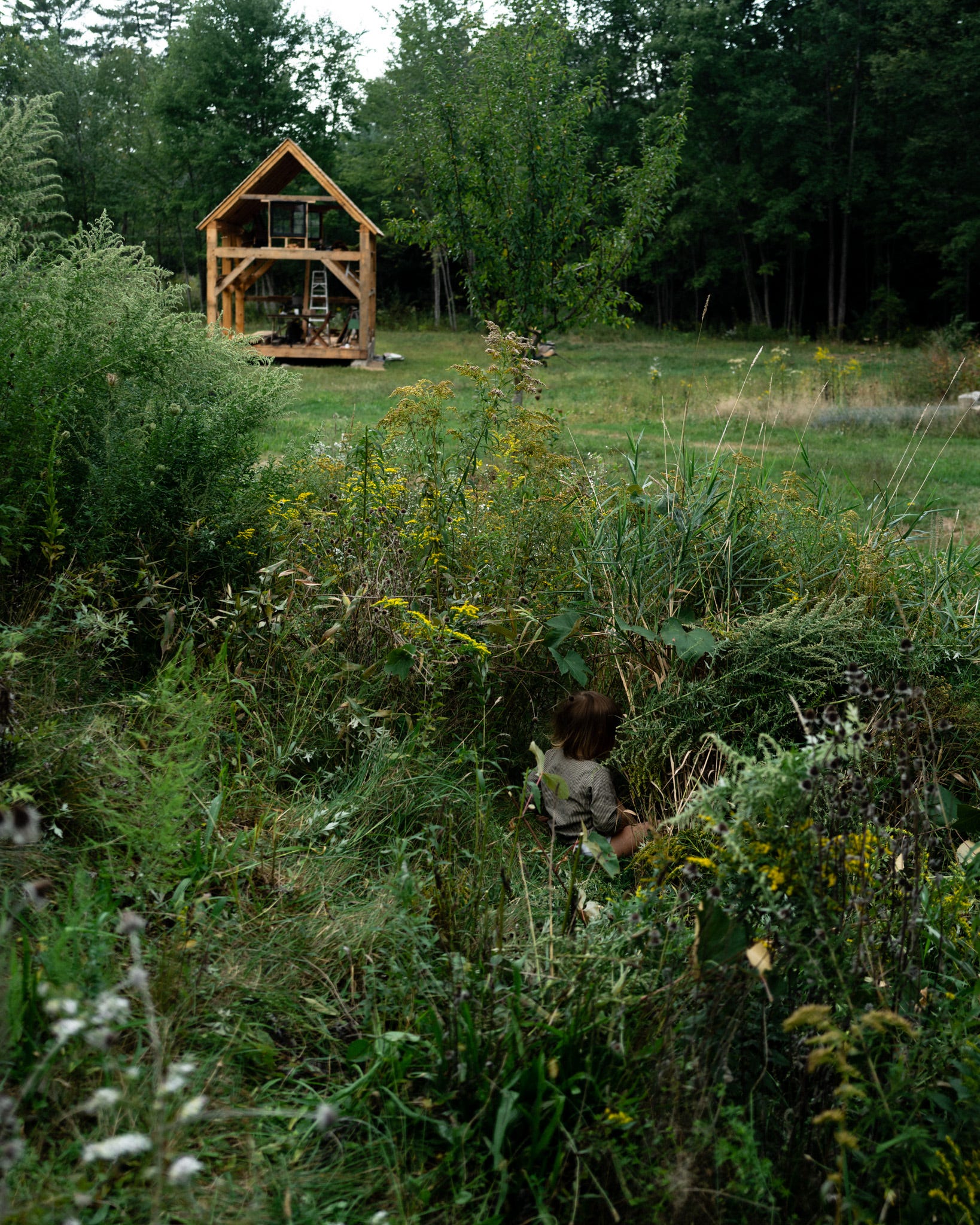
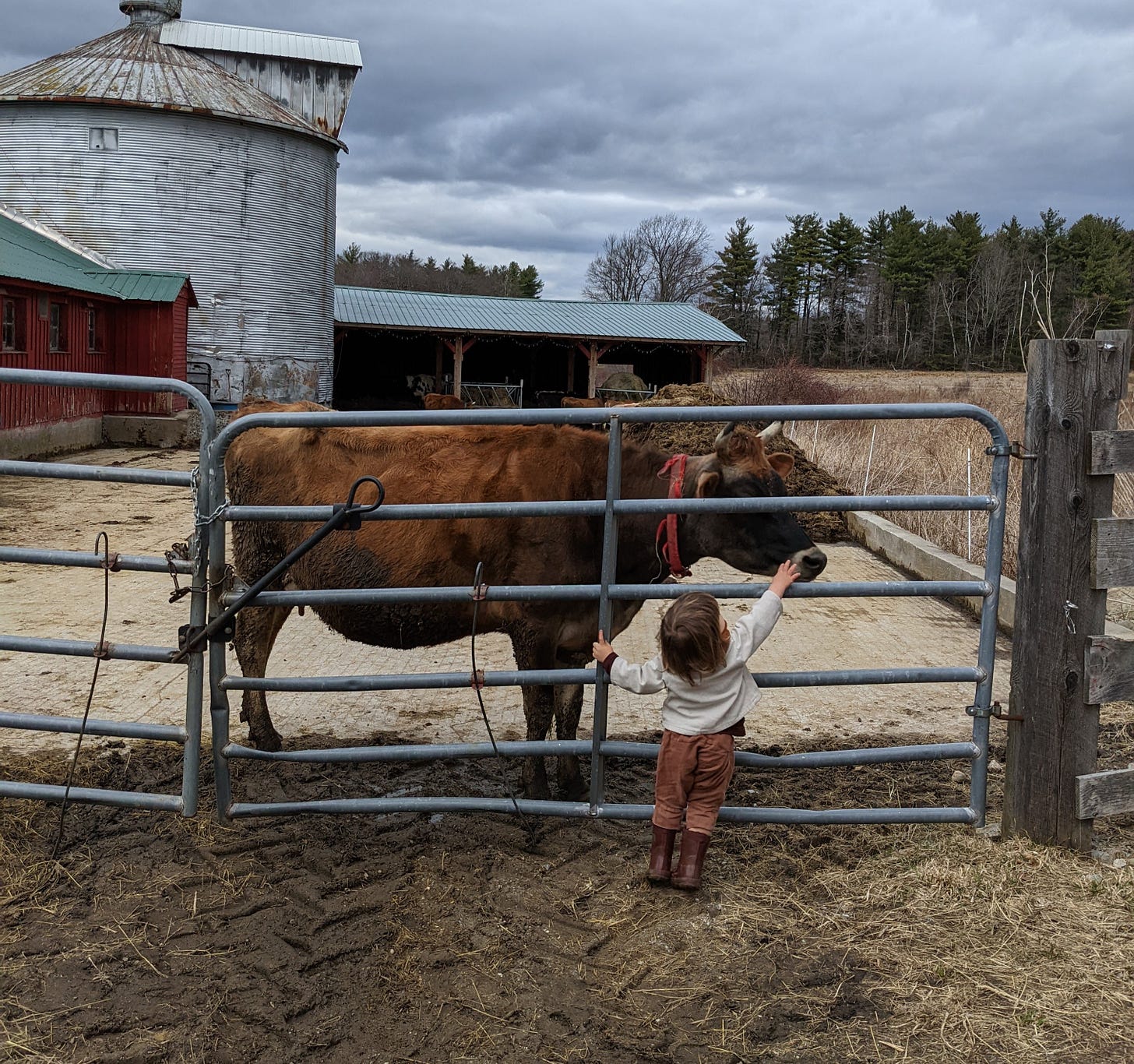
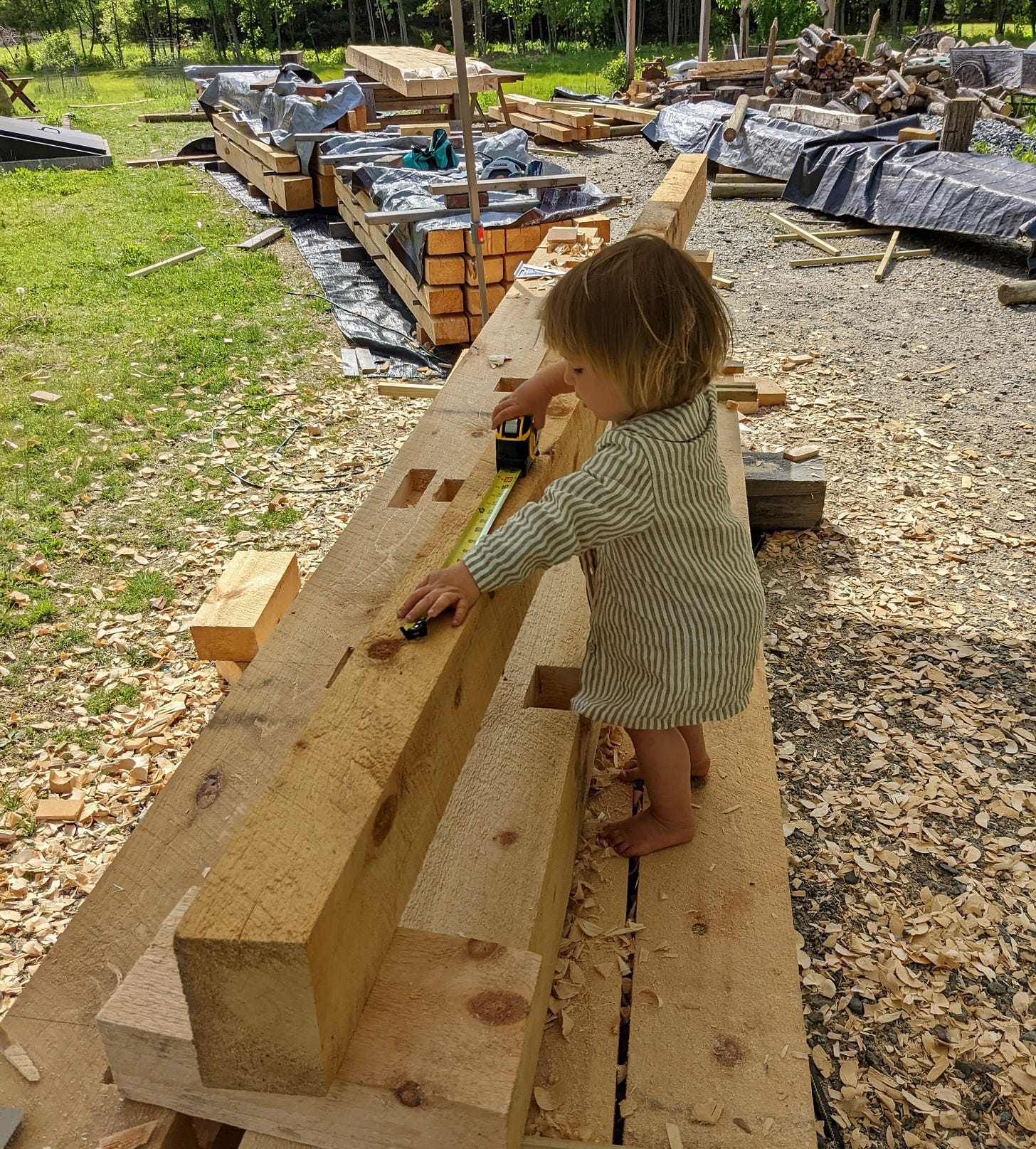
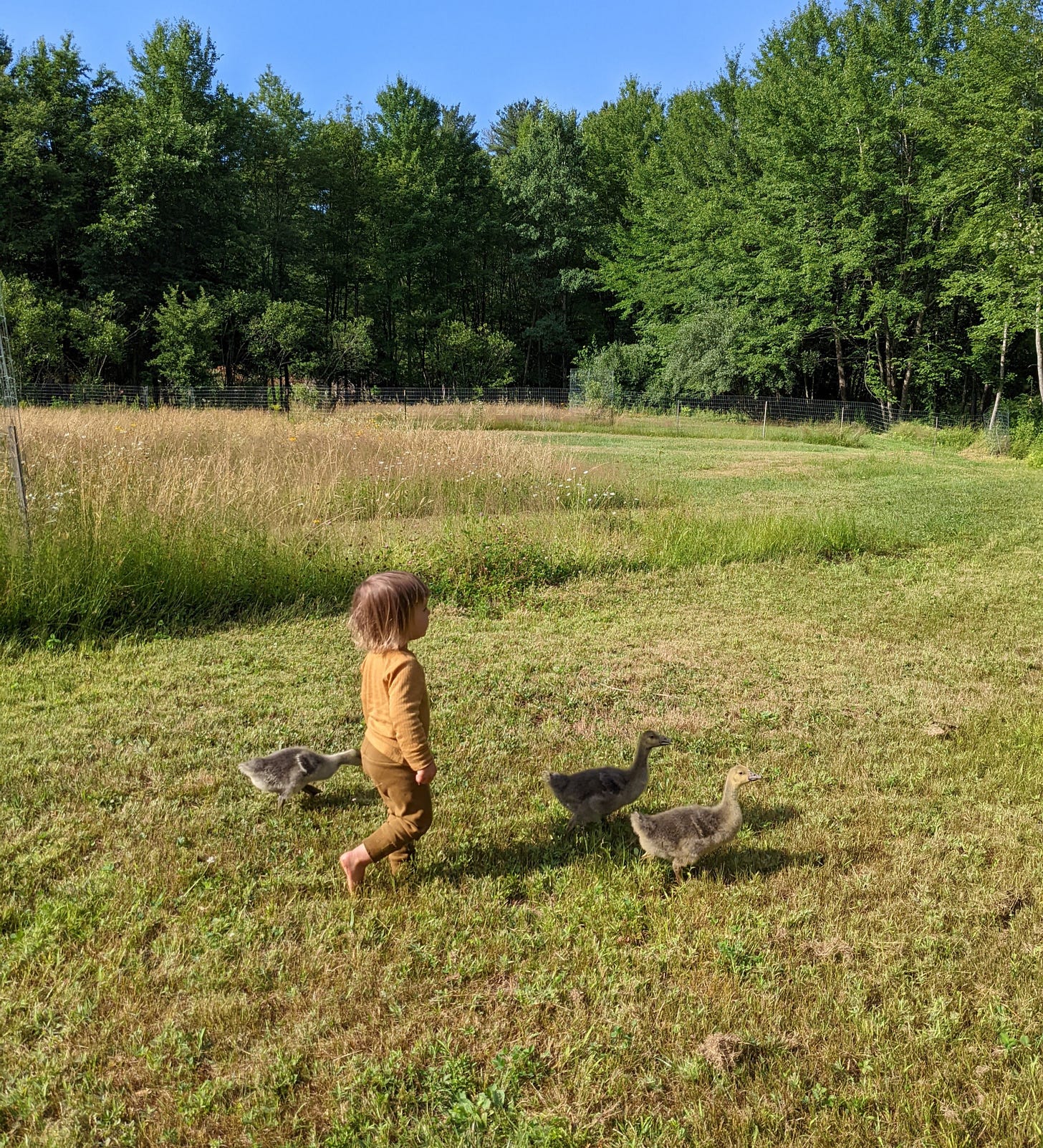
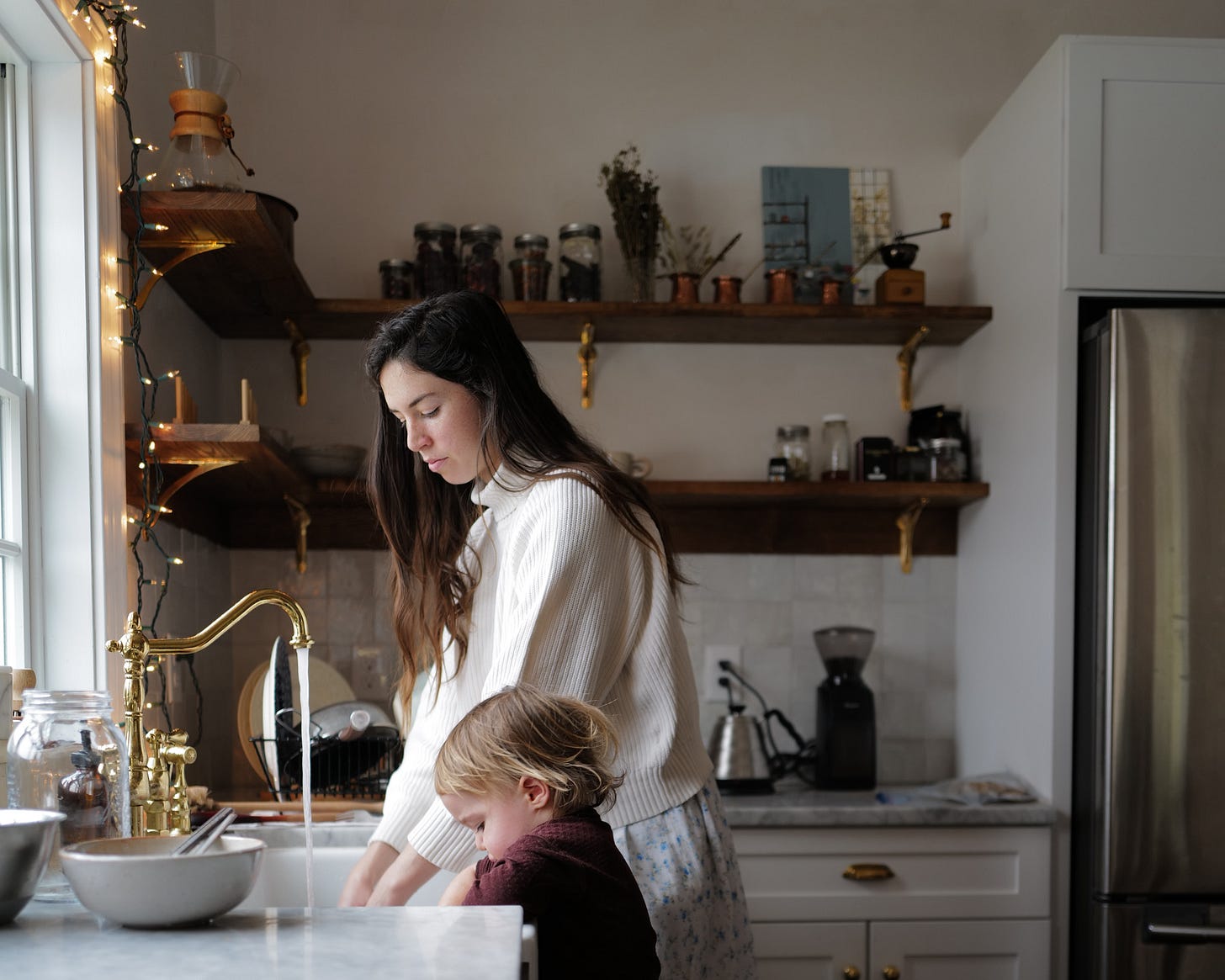
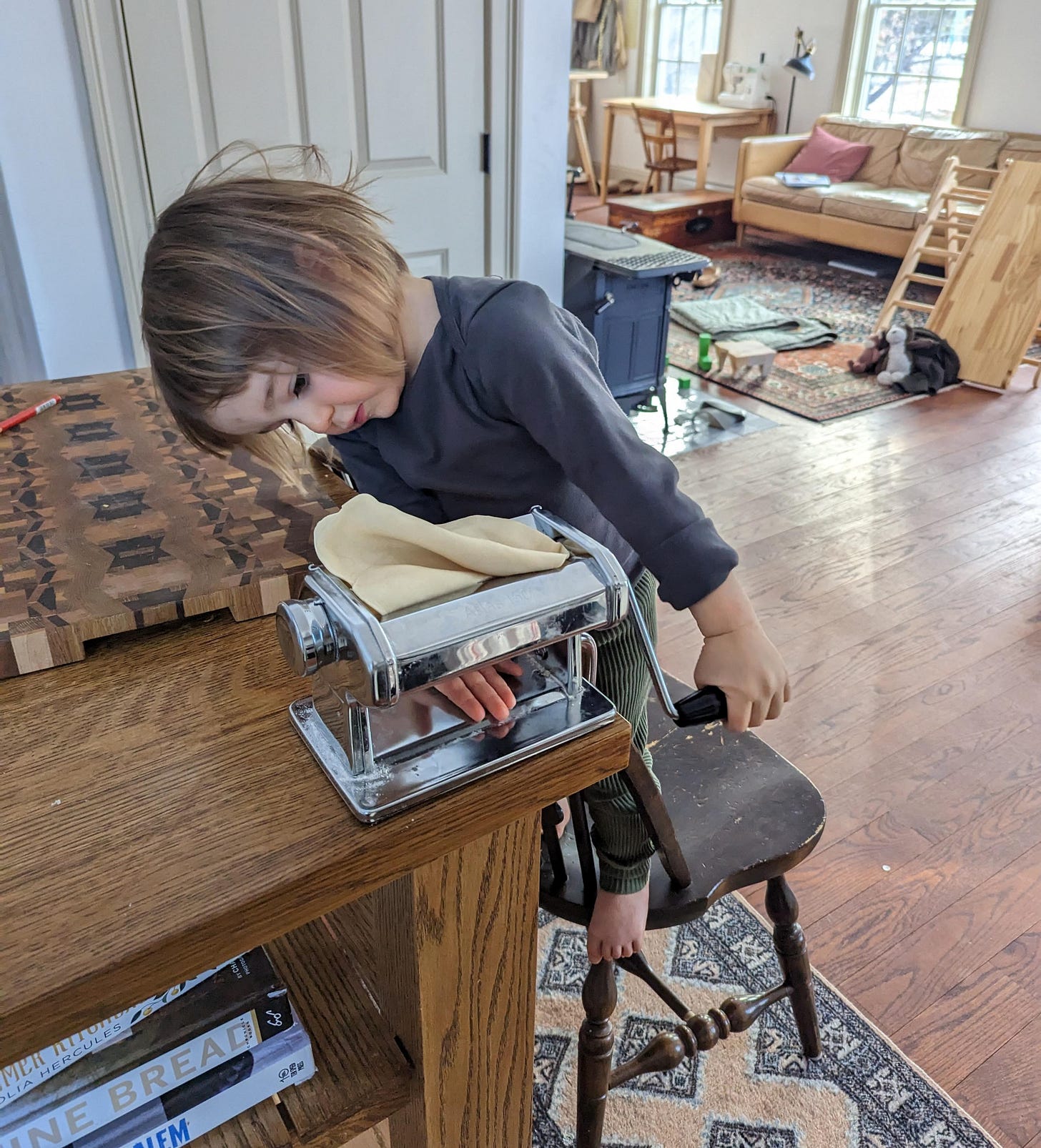
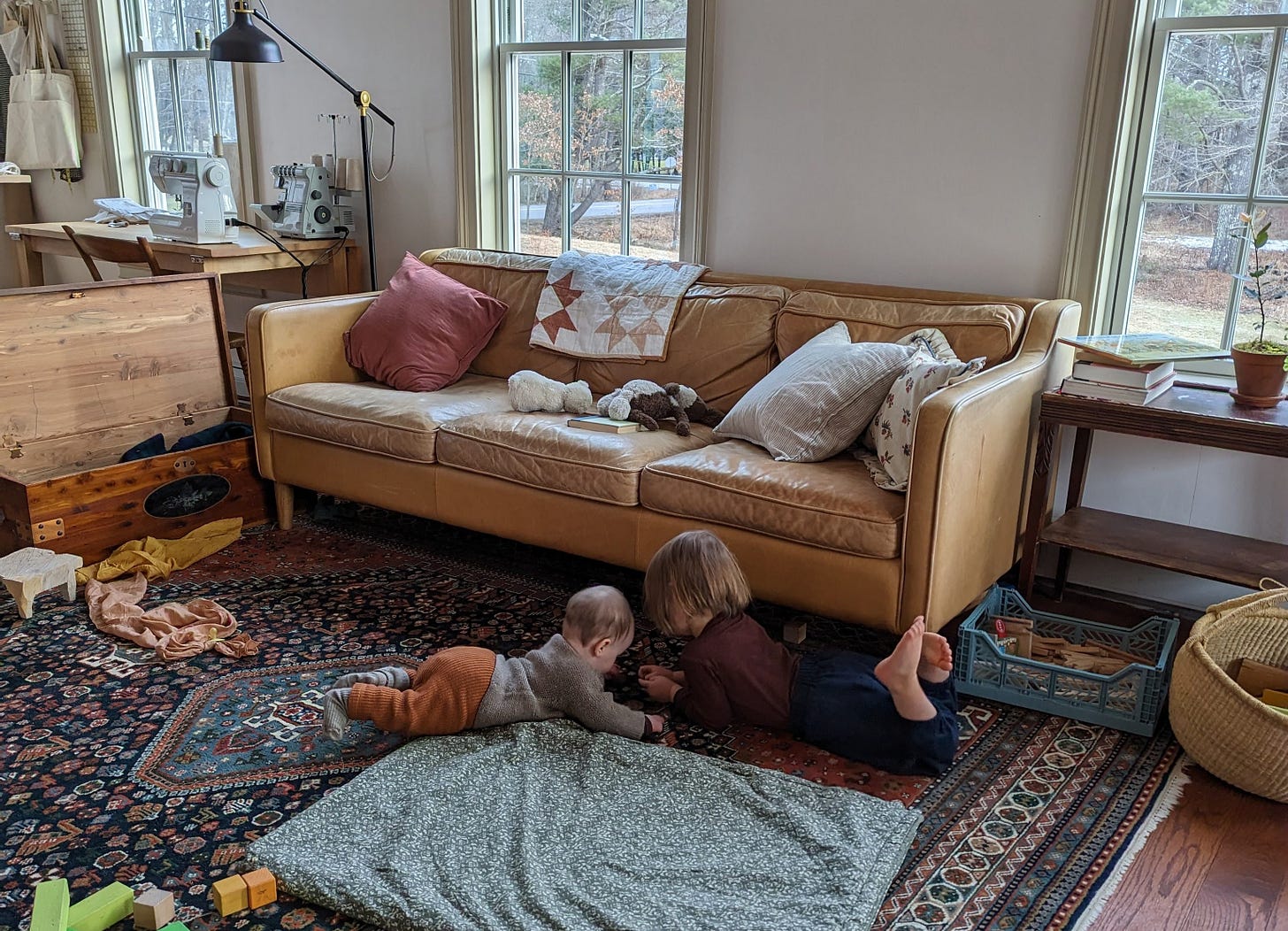
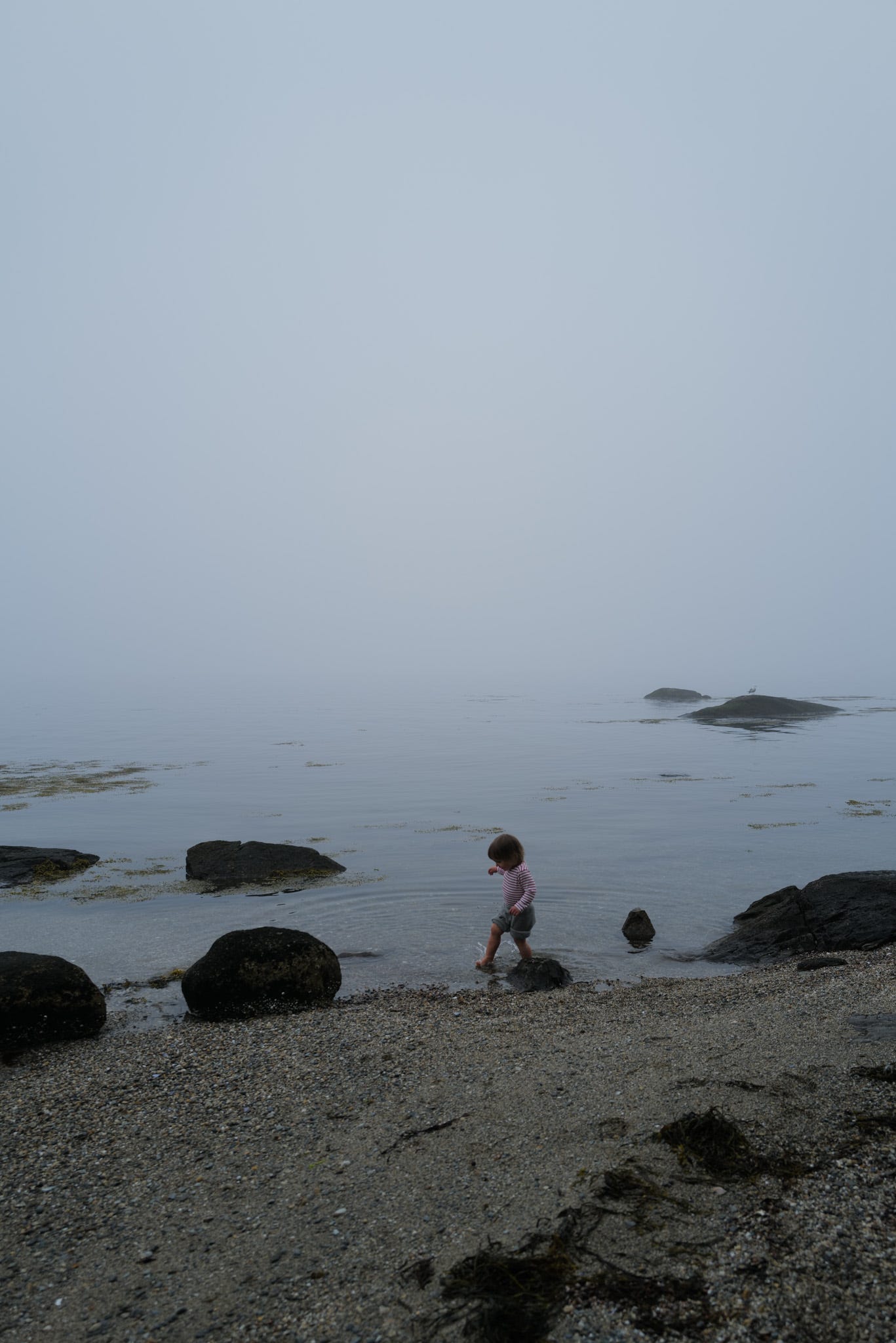
My babies are 30 and 28, and watching them is still just as wonderful. Thanks for this lovely piece.
I'm too distracted by the cute photos to read, sorry not sorry :)